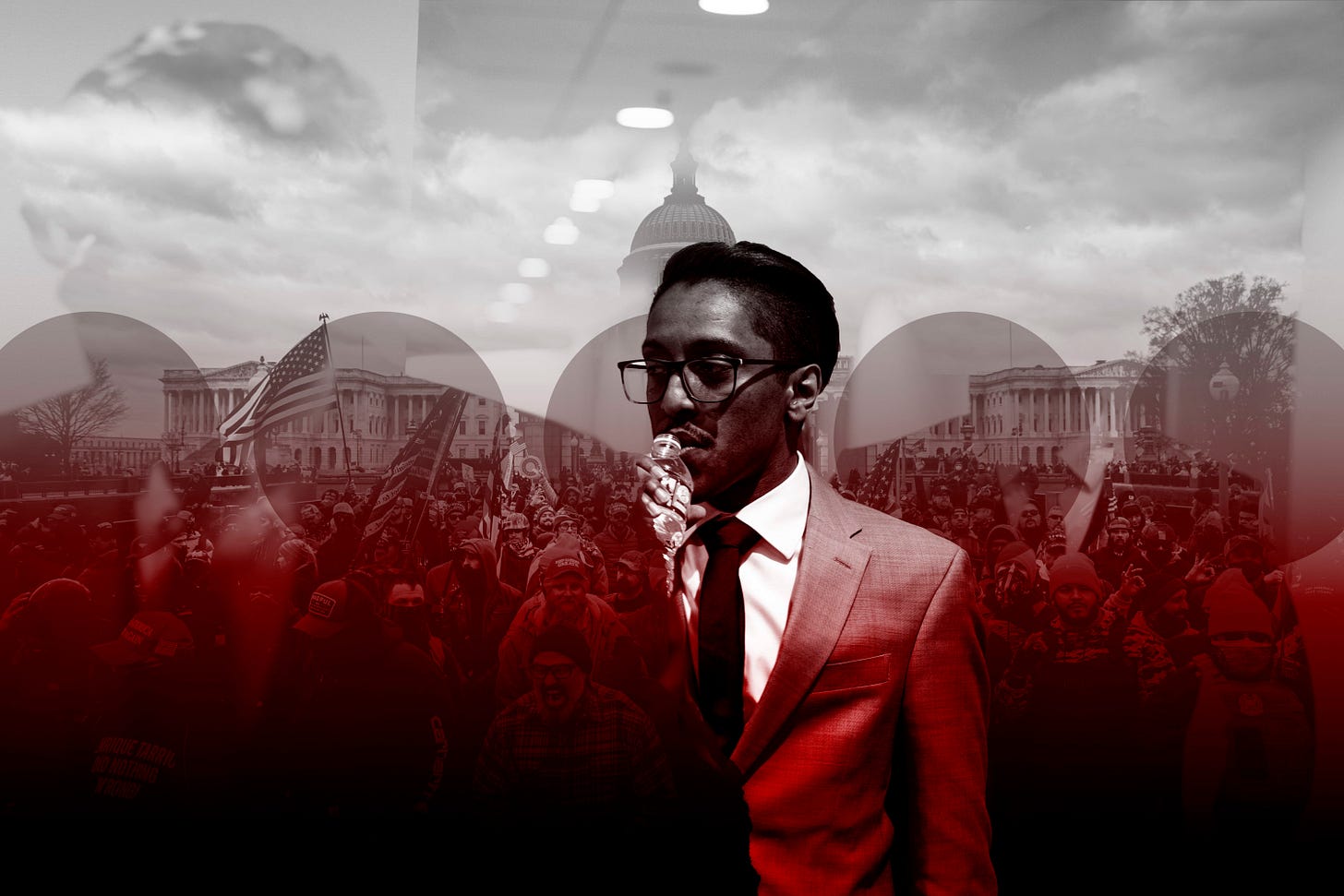The GOP’s Attempt to Memory-Hole Jan. 6th
And House investigators’ tight timetable for getting to the truth.

The day after the January 6th attack on the Capitol—some six weeks before his death—Rush Limbaugh logged on for his first show of 2021. He managed to find a way to throw some blame at the Democrats for the previous day’s violence: “So you can set fire to a downtown strip of any blue-state city—Portland, Seattle, Minneapolis, New York—and it’s called a peaceful protest. But you dare not set foot where the political class lives and works and does its job.”
Limbaugh was one of the many prominent conservative media figures to push false information about the 2020 election—“There’s simply no way Joe Biden was legitimately elected president. I just can’t believe it,” he said soon after the TV networks determined that Biden had sufficient votes to win. Dishonesty like Limbaugh’s about supposed election fraud helped stoke the crowd that ransacked the Capitol.
Immediately after the attack, prominent Republicans blamed Donald Trump for the chaos and bloodshed of January 6th. But in the ensuing debates—first over Trump’s second impeachment, then over how best to investigate the events of January 6th—Republicans started to shift away from blaming Trump to blaming, well, anybody else. They began to echo Rush’s talking points like the good dittoheads they are.
Collectively, it’s like they all suffered from amnesia—or as Rush might quip, Lindsey Grahamnesia.
One result was a vicious circle, in which the Republican base and Republican politicians reinforced one another’s worst impulses. Polls have repeatedly shown that a huge percentage of Republicans believe that the 2020 election was stolen and that Joe Biden was illegitimately sworn in as president. Republican politicians therefore rarely push back against the Big Lie, which in turn makes the base more extreme. Each pushed the other further toward unreality and indecency. And in this midst of this political psychodrama sits the ugliness of January 6th: violence in the service of a lie, now being lied about.
The January 6th committee in the House of Representatives is methodically digging through the mountains of records from the post-election period. As its members put out public statements, we’re slowly finding out all sorts of information that has Republicans howling. The phone records of legislators and Trump administration officials have already provided some eye-openers—such as the revelation that Fox News anchors texted White House chief of staff Mark Meadows, encouraging him to plead with Trump to call on his supporters to leave the Capitol.
Will Saletan has put together a handy timeline of just these texts to Meadows, and it doesn’t make anyone look good—especially since several of the individuals who took the insurrection seriously as it unfolded then publicly distorted and downplayed what happened.
And the committee could unearth more texts, a lot more. Right now we’ve mostly only seen the side of people who were asking Trump to stop the fight, if even to preserve his legacy. Imagine what we might learn if we hear from the people who encouraged Trump’s coup attempt, like Steve Bannon, who has been charged with contempt of Congress for refusing to comply with subpoenas from the committee.
Similarly, Meadows is suing to stop the committee, skipped his deposition, and was held in contempt. His testimony could be key to knowing what information Trump was getting that day, from whom, and why he waited until most of the violence was over to issue his contemptible and far-too-late video statement.
One of the lesser-known individuals involved in the events of January 6th, activist Ali Alexander, has shown a little leg and cooperated to a point, turning over materials but also filing a suit challenging the wide digital net the committee is casting. The materials that Alexander did turn over to the committee, while apparently including no bombshells, do reveal that he texted with a few conservative lawmakers who voted to overturn the election—information that helps give us a better picture of the coordination between the various components of the coup: the Trump team, its congressional allies, and the activists.
We’re still waiting for the GOP report on January 6th that House Republican Leader Kevin McCarthy promised, but his preference, apparently like that of most Republicans, would surely be to memory-hole the day and the events that led up to it.
As for the January 6th committee, it is running out of time. If, as appears likely, Republicans win back the House in November’s midterm elections, they are expected to kill off the committee as soon as they are sworn in in January 2023. That puts a tight deadline on the committee’s work—especially considering that some of the lawsuits over subpoenas could take months to resolve. (Bannon’s trial for contempt of Congress, for example, is set for July and could go on for quite a while.)
If, to wrap up its work because of the midterm results, the committee has to rush out its final report late this year, it will unfortunately be based on only a fraction of the information the committee is seeking, since the relevant litigation will surely still be underway.
Even if Democrats manage to retain control of the House, which would permit the committee to continue its work beyond next January, the panel will lose at least one of its two Republican members, with Rep. Adam Kinzinger not seeking re-election. And Rep. Liz Cheney’s continued participation is contingent upon her winning her re-election race. A January 6th panel without them—with only Democrats participating—would just give Republicans more ammunition to say that the committee is a partisan witch hunt, as they’ve been saying since they walked away because Speaker Pelosi rejected McCarthy’s unserious nominees for the committee.
Given all the uncertainties, it is impossible at this point to guess what the committee’s final report will yield, but I can make this prediction: House Republicans, asked by journalists about the report, will tell you they didn’t have time to read it.


